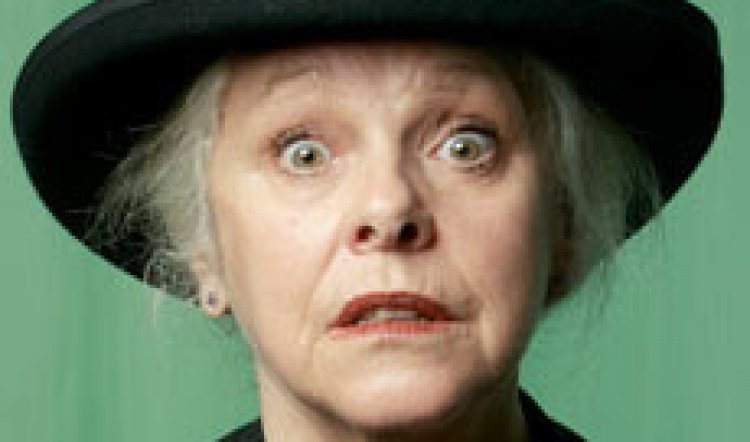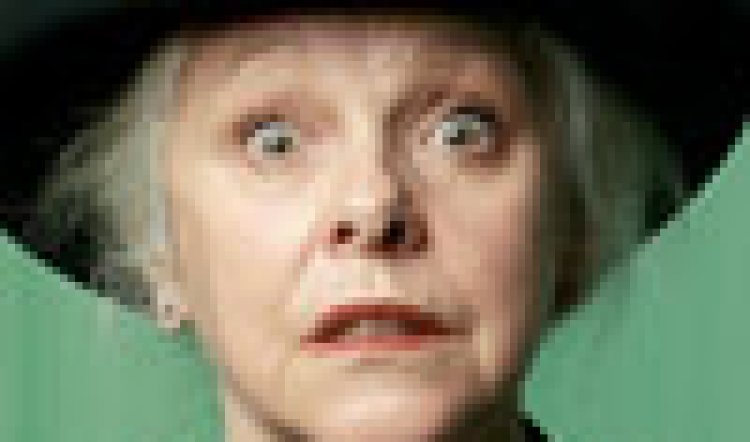
Gates of Egypt
In program notes for his latest play, The Gates of Egypt, Stephen Sewell writes of Australians existing in a “phoney unreality”.
The real reality underlying this curious statement which in its thunderous lack of meaning is typical Sewellspeak, was captured on the play’s opening night by comments from two members of the audience.
Audient 1: “Even when I don’t like them I do like his plays, they can be quite interesting.”
Then, elsewhere in the foyer:
Audient 2: “My daughter won’t go to the theatre, just to be on the safe side.”
If your reaction to these profound observations is either amusement or bemusement, then you’re probably boringly normal and among those complacent and ghastly Australians whose discourse consists of “dross and cowardice” and who are so despised by the eternally angry playwright.
Anger and passion have been the underlying characteristics of Sewell’s work for more than 20 years. It’s what makes him somewhat popular with angry young men (and, to a lesser extent, angry young women) who haven’t been around long enough yet to know better. The point of youthful anger is that over time and with maturity it’s tempered by reason and compassion so that the burning black and white issues of youth take on the multi-colours and multi-facets of real life.
This is an aspect of human existence that appears never to have bothered Sewell whose work seems to be afflicted by a kind of arrested development. This works to feed the anger and allows a robust and startlingly successful occupation of the moral high ground. In Sewell’s phoney unreality, if you’re not with him - you’re against him. To disagree is to be revealed as a self-satisfied petit bourgeois fellow traveller in the luxury limo of Aussie life.
Be that as it may, this running dog lackey of filthy imperialist-capitalist scum not only wishes to disagree but to say: the emperor is entirely unclothed except for a toga of self-righteousness and as such is among the least attractive sights in modern Australia. Up there with John Howard’s abject kow-towing to his mate George; up there with the Janus-faced death’s head otherwise known as Philip Ruddock; up there with a river system whose headwaters and existence remain hostage to agribusiness. I could go on, but you get the drift.
The most distressing thing is, it’s not as if we are overrun with challenging political theatre. In 21st century Australia where celebrity ballroom dancing is the zenith of popular culture, passionate, intelligent political playwrighting is rare. When it’s done well it can move mountains: it is not an exaggeration to say that Nigel Jamieson’s Honour Bound was instrumental in beginning the tide-turn of public opinion and awareness in the case of David Hicks, for instance. But when a political play is incoherent, smug, ranting, ill-conceived nonsense, it does more harm than good.
[page]The Gates of Egypt has all the Sewell hallmarks: sound, fury, hate, characters so one-dimensional they might have been run over by a steamroller; characters who shout mindlessly at one another yet are oblivious to the shouting. (Perhaps, in the phoney unreality of Sewell-land, families are not only dysfunctional but hearing-impaired and so numbed by bombast they simply don’t notice when they’re either yelling or being yelled at.)
Possibly the most dismaying aspect of the play, however, is the character of Clarice, a middle-aged woman whose husband has died and left her with an overwhelming need to embark on a quest for meaning. In this instance, it’s a trip to Egypt.
According to the playwright, he began the play - and presumably fashioned the central character - in the aftermath of his mother’s death in July 2006. He says his mother was not political but was caring andcompassionate and could recognise injustice; her concerns lay with herfamily and she had courage, pride and a sense of personal dignity and valour.

While Clarice displays those qualities, they actually emanate from the strength and intelligence of the actress - Lynette Curran - whose valour in struggling to bring her to coherent life is unquestioned. However, Clarice is essentially an improbably irresponsible creature. Her blithe stupidity in trotting off alone into the nether reaches of the Valley of the Kings is breathtaking.
So is her Barbie doll-like passivity in casually describing the occasion of her rape by some greasy A-rab in the back of a carpet emporium.
It’s impossible to believe an Australian woman of this day and age could be so naive and reckless. What’s more, it’s even more difficult to believe that she gives not a second thought to the event afterwards, puts herself even further in harm’s way and guess what? She gets kidnapped, tortured and murdered by a stereotype!
In the teachers’ notes for schools (god help us) teachers are advised: “On occasion, some characters speak racist slurs against American Jews and some characters speak racist slurs against Arabs. You may wish to explore with your students the reason why unsavoury attitudes are sometimes represented on stage. These are not gratuitous slurs, but rather a conscious choice by the playwright in the characterisation of certain characters. Such choices play a part in the communication of the central ideas of the play. For example: the futility of hate and the need to learn to love.”
[page]It is fascinating but not surprising that the slurs against women are not mentioned. Female characters in Sewell plays are often denigrated, shouted at, abused and generally treated in ways that reasonable people might think misogynist - thus demonstrating the urgent need to understand the futility of hate and the need to learn to love.
But back to the racist slurs. Abu Abbas, the Arab terrorist who captures Clarice, knocks out a tooth, cuts off a finger and finally kills her, would be a cartoon comedy character if not so well played by Hazem Shammas. His blazing-eyed conviction and strength in portraying a man whose very genes are angry at the West are so powerful that it would take a very mature school student to understand he represents the complexity, history, personal and political conflict, the millions of dead and the impossibility of reconciliation that is the current state of Islam v West.
Meanwhile, among the other ciphers are a pair of guileless American tourists, an ocker BBQ husband, a dead man in white face and a few other hapless souls played with admirable devotion to duty by Mark Denkha, Russell Kiefel, Jacqueline Linke, Anna Lise Phillips, Damien Rice, Indyana Schneider and Shakira Wilson.
Designer Brian Thomson’s lofty, empty space conveys, via lighting, projections (Verity Hampson) and minimal furnishings, both Egyptian tombs and a suburban backyard (love the fairy-lit Weber). However, mention must be made of Lynette Curran’s truly horrible outfit - possibly forced on her at gunpoint with a threat to knock out teeth and cut off fingers. As well as being one of our finest actors, Curran is a good looking woman whose dignity should not be hostage to an inexplicable outfit that makes her look like a goose. It’s not about character and it’s not about the character’s situation - unless phoney unreality rules here too. It should be burned.
During the interval on opening night another Audient said in tones of bewilderment: “I think I’ll have to revise my opinion of Troupers. Beside this it’s beginning to look like a work of transcendent genius.” By the end of the performance he hadn’t changed his mind.
The Gates of Egypt, Belvoir St to March 11; ph: 9699 3444 or www.belvoir.com.au



